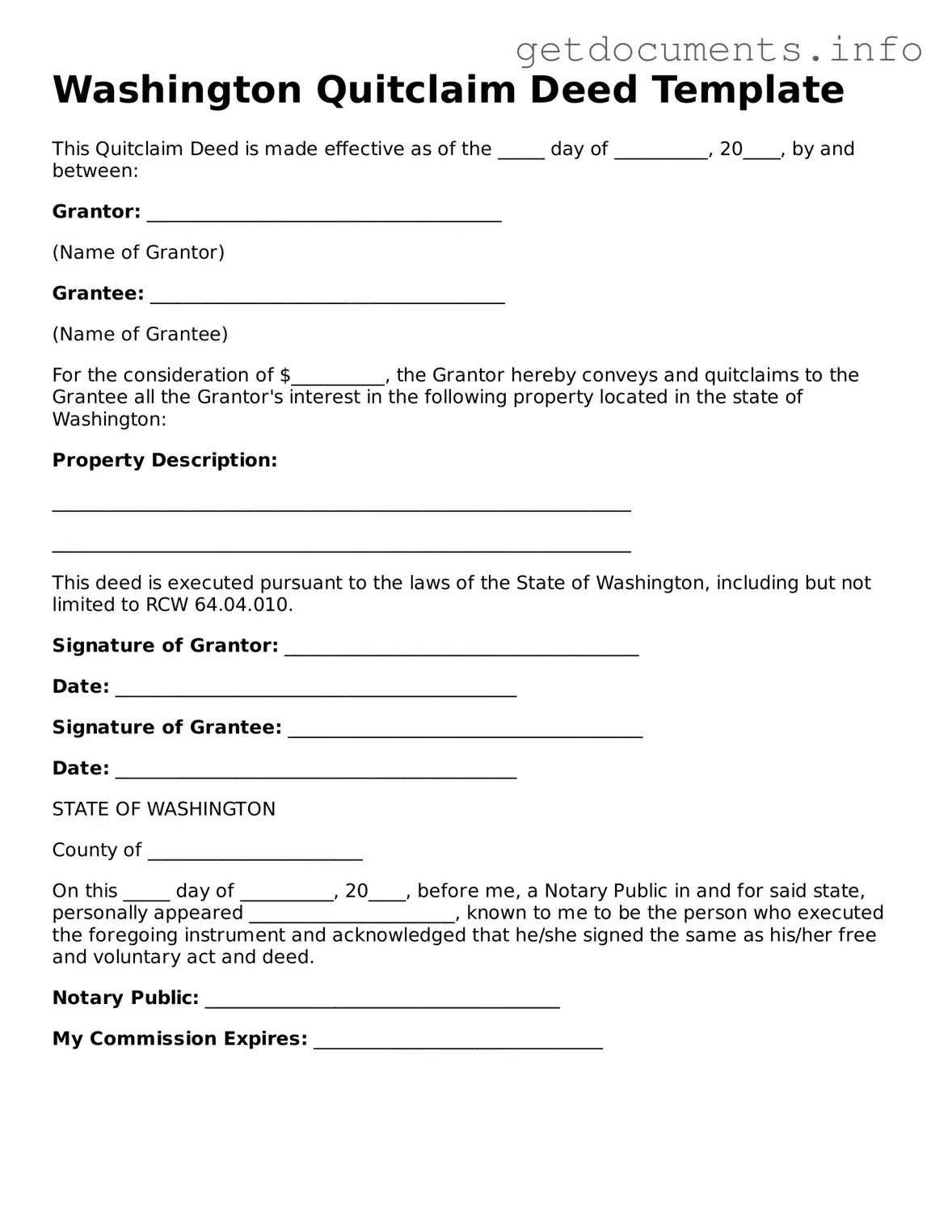Free Quitclaim Deed Template for Washington
A Washington Quitclaim Deed is a legal document that allows a property owner to transfer their interest in real estate to another party without making any guarantees about the title. This form is particularly useful in situations where the parties know each other well, such as family transfers or divorces. If you're ready to complete a Quitclaim Deed, fill out the form by clicking the button below.
Access Quitclaim Deed Editor

Free Quitclaim Deed Template for Washington
Access Quitclaim Deed Editor
Got places to be? Complete the form fast
Fill out Quitclaim Deed online and avoid printing or scanning.
Access Quitclaim Deed Editor
or
⇩ PDF File
